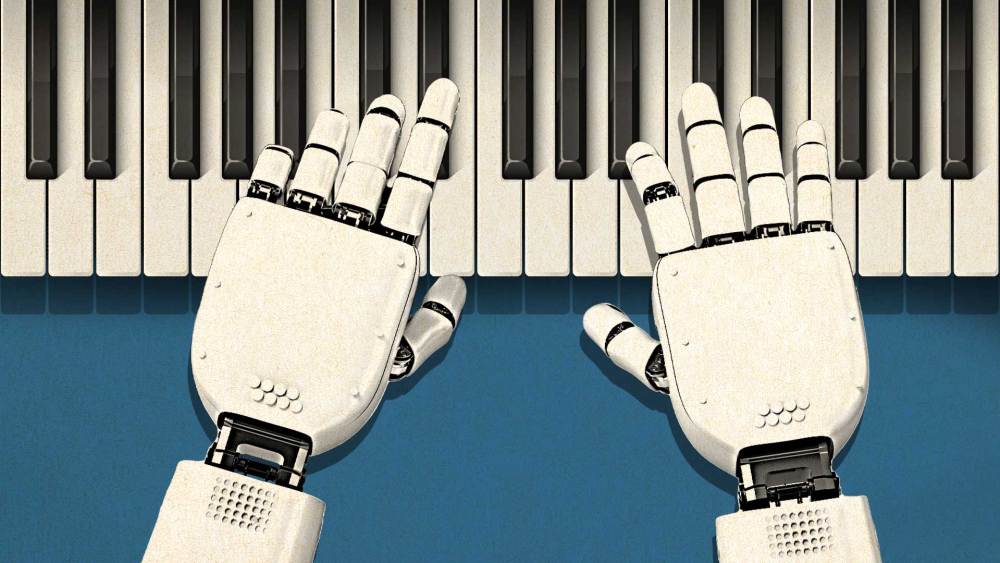As if there wasn’t already enough drama and confusion around AI and the music industry, the shadowy musician Ghostwriter’s song “Heart on My Sleeve” — which used generative AI to create fake verses that sound uncannily like Drake and the Weeknd — has spawned no small amount of confusion regarding the Grammys. First, it seemed that the song wouldn’t qualify (and was removed from streaming services shortly after its release in April), then it apparently did, then it didn’t, then it finally did — but only after the artist had removed the fake Drake and Weeknd verses. That solution did absolutely nothing to clarify the ball of confusion that AI, in all of its forms, has thrown into the music business.
Confusing the matter even more, Paul McCartney unexpectedly announced in June that AI had been used to improve the sound quality of a John Lennon demo that was used as the foundation of “the last Beatles song,” which will be coming out later this year. Grammy chief Harvey Mason Jr. told Variety earlier this year that the Beatles song could qualify for an award.
The difference between the two songs spotlights the Academy’s distinctions in uses of AI at this early stage: The Beatles song, which was created entirely by human beings, and used AI simply to remove background noise from Lennon’s original recording; no one cloned John Lennon or used AI to write, sing or otherwise create the song itself. However, Ghostwriter used generative AI to create Drake and Weeknd lyrics and melodies with no conscious input from those artists. He was able to do this by loading multiple copyrighted songs by those artists into a computer — ingesting data for machine learning, in technical terms — which is where the legal issues come in.
Mason reiterated in a video statement last month that the original version of Ghostwriter’s song — and presumably all songs using generative AI in a similar way — is not eligible for a Grammy because “even though it was written by a human creator, the vocals were not legally obtained, the vocals were not cleared by the label or the artists and the song is not commercially available.”
The Recording Academy and Universal both declined Variety’s requests for comment for this article, but Mason’s statement seemed to indicate a copyright violation related to the sound of the artists’ voices. However, top intellectual property attorney Robert Clarida says the song is in problematic legal territory not because of the AI-generated voices themselves, but because copyrighted recordings were used to “train” the AI.
“A voice itself is not copyrightable,” he says, “but you’re using a recording to train the AI; that’s where the copyright infringement could come in.”
Complicating the matter even further is Canadian singer Grimes, who not only invited musicians to use her voice for their original songs, but created software called Elf.tech containing recordings of her vocals to facilitate the process — as long as they gave her 50% of the recorded-music royalties from the use. Clarida says she is on solid legal ground not because she holds any copyright to the sound of her voice, but rather the rights to those specific recordings of her voice (which are not from her pre-2022 discography).
Love Film & TV?
Get your daily dose of everything happening in music, film and TV in Australia and abroad.
On a related note, a legal precedent for “soundalike” recordings would seem to exist in lawsuits filed by Bette Midler, Tom Waits and Astrud Gilberto during the 1980s and ‘90s, when the singers successfully sued brands that used vocalists essentially impersonating them in commercials. While those decisions would seem to imply some form of ownership over the sound of a voice, those decisions actually were based on right of publicity (which is designed to protect the names and likenesses of public figures against unauthorized exploitation for commercial purposes).
In Midler’s case “a singer with a voice that sounded like hers sang a song that she was strongly associated with for a commercial,” Clarida says, referencing a 1988 lawsuit the singer filed against the Ford Motor Corporation, which had used a version of “Do You Wanna Dance,” sung by one of her backing singers, very similar to her hit 1972 cover. “That was held to be a violation both of the right of publicity under state law, and under the Lanham Act, which is essentially a federal trademark law covering false advertising. So it was seen as kind of a species of false advertising.” However, he stresses, such an argument would not work for a commercially released song, because “songs have more First Amendment protection than commercials do.”
Thus, once a way is found to license creative work ingested by AI, presumably the road will be clear for such songs to be commercially available in a way that does not violate copyright. From sampling to streaming, the music industry has taken the lead in many issues around IP in the entertainment world and beyond, and that is likely to be the case with AI.
In May, Universal announced a partnership with AI sound-wellness company Endel to enable UMG artists to create “soundscapes” using AI, and it’s very likely that more licenses will ensue. “In the ’80s, everybody was saying, ‘Sampling is gonna kill the music industry, how can anybody ever get paid for this?’” Clarida says. “Well, there was a will and a way, and people figured out how to make it work.”
Now dig into VIP+’s data-fueled AI subscriber report …
From Variety US































